Are you looking to take the first step towards an exciting career in biomedical engineering? Crafting a well-structured internship application letter is crucial for making a lasting impression on potential employers. In this article, we'll explore essential tips and handy templates to help you effectively showcase your skills and passion in the field. Join us as we dive deeper into the world of internship applications and prepare you for success!

Clear contact information and subject line.
Biomedical engineering internships provide aspiring students with practical experience in healthcare technology, combining principles of engineering with biological sciences. The application process typically requires a well-structured cover letter that highlights academic achievements, relevant skills, and internship interests. This document should begin with clear contact information, including the applicant's name, address, email, and phone number, followed by the recipient's details, which may include the organization's name (such as Johns Hopkins University Applied Physics Laboratory) and address. The subject line must be specific, stating the intention to apply for the internship position, like "Application for Biomedical Engineering Internship - [Your Name]." It is essential to maintain a professional tone and format throughout the letter, showcasing an understanding of the organization's mission and the specific contributions the applicant aims to make. Additionally, discussing previous projects or coursework related to biomaterials, medical devices, or tissue engineering could strengthen the application.
Professional and enthusiastic introduction.
Aspiring biomedical engineers are driven by a passion for enhancing healthcare through innovative technology and solutions. The field encompasses various specializations, including medical imaging, biomaterials, and tissue engineering, aimed at improving patient outcomes and transforming medical practices. Interning in a leading biomedical engineering company, such as Medtronic or Boston Scientific, provides invaluable hands-on experience. Students gain exposure to cutting-edge projects that address real-world challenges in the healthcare industry, contributing to advancements in medical devices and therapeutic strategies. Understanding regulatory requirements, such as those outlined by the Food and Drug Administration (FDA) in the United States, can further enrich a student's practical knowledge and skill set. A strong foundation in subjects like materials science and fluid dynamics is essential for practical applications in this dynamic sector.
Statement of interest and alignment with company goals.
Innovative biomedical engineering companies like Medtronic strive to improve patient outcomes through cutting-edge technologies and advancements. Aspiring interns should highlight their proficiency in designing medical devices and understanding biological systems. Contributions might include working on projects that focus on developing prosthetic limbs, advanced diagnostic tools, or wearable health monitoring systems. Aligning personal goals with the company's mission involves emphasizing a commitment to enhancing human health and addressing global challenges, such as access to healthcare and reducing medical costs. Emphasizing a strong foundation in coursework, hands-on experience in laboratory settings, and interdisciplinary collaboration showcases readiness to support the company's objectives in delivering impactful healthcare solutions.
Relevant skills, coursework, and experiences.
An internship in biomedical engineering requires a solid foundation in both engineering principles and biological sciences. Relevant coursework often includes subjects such as biomechanics, biomaterials, and medical imaging, equipping students with the necessary technical skills. Hands-on experiences, like working on projects involving programmable systems or conducting experiments in tissue engineering labs, provide practical knowledge. Proficiency in software programs such as MATLAB and SolidWorks enhances a candidate's ability to design and analyze biomedical devices effectively. Additionally, participation in engineering clubs or volunteer work in healthcare settings can showcase a commitment to both engineering and patient care, rounding out the candidate's skills and experiences essential for success in the biomedical engineering field.
Gratitude and call to action for interview opportunity.
Biomedical engineering advancements, such as tissue scaffolding and drug delivery systems, drive innovations in healthcare. Companies like Medtronic, based in Minnesota, and Boston Scientific, headquartered in Massachusetts, lead in creating life-saving devices. Internships in these prominent firms often focus on critical projects involving biocompatibility testing and regulatory compliance. Candidates gain hands-on experience with cutting-edge technologies, such as 3D printing for prosthetic development. Engaging in collaborative team environments enhances problem-solving skills, vital for future challenges in the biomedical field. Opportunities for mentorship from seasoned engineers further expand professional networks and knowledge.
Letter Template For Internship Application Biomedical Engineering Samples
Letter template of internship application for biomedical engineering students
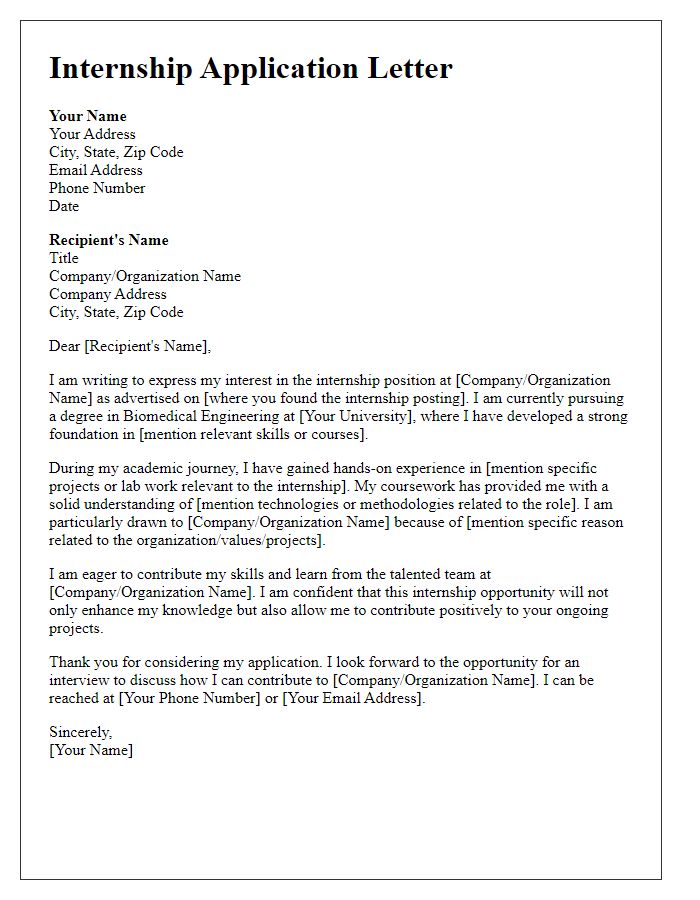
Letter template of summer internship application in biomedical engineering
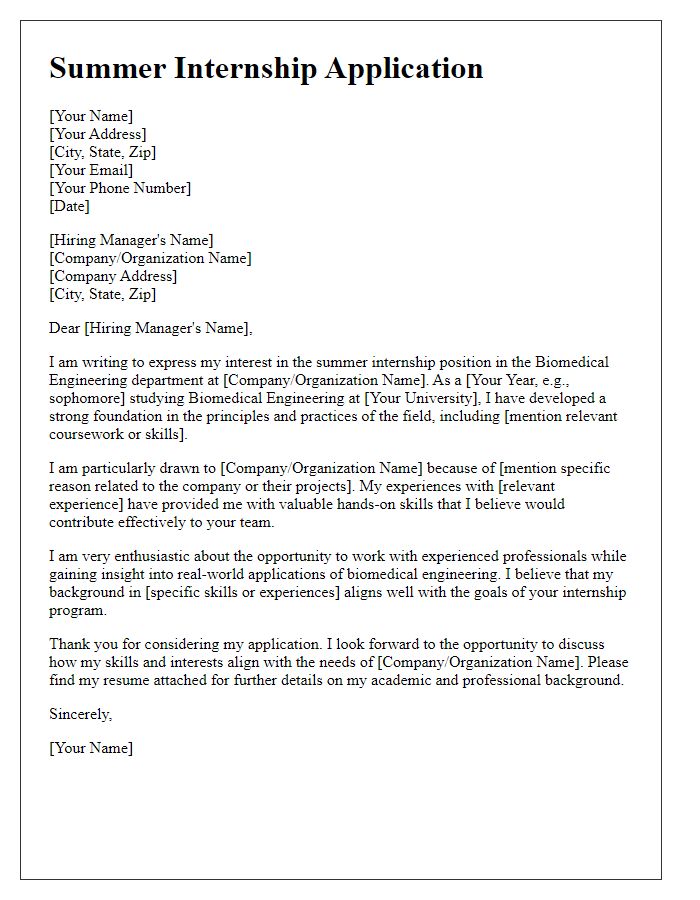
Letter template of research internship application for biomedical engineering
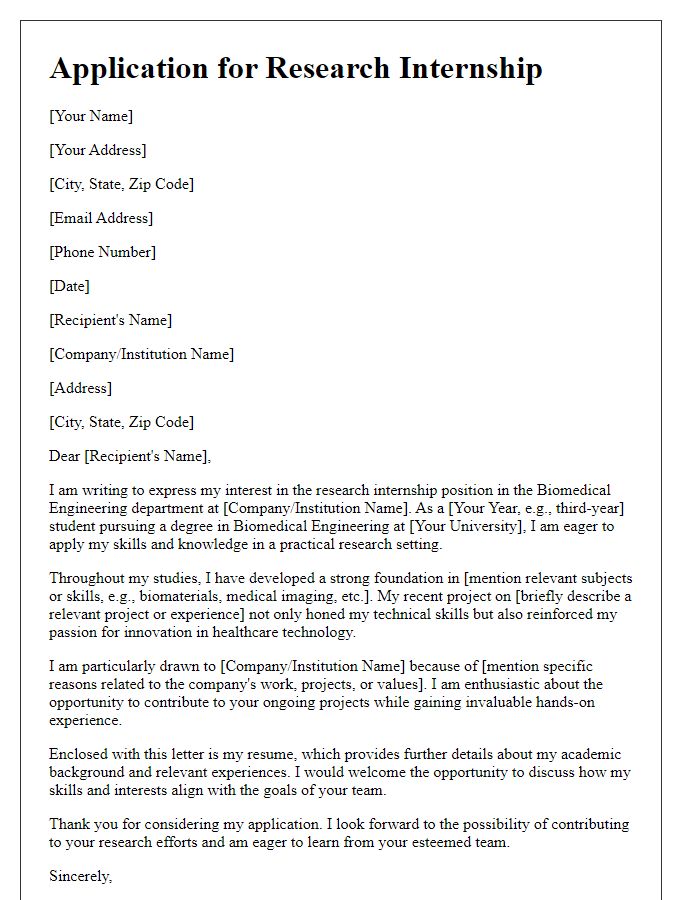
Letter template of internship application for biomedical engineering undergraduates
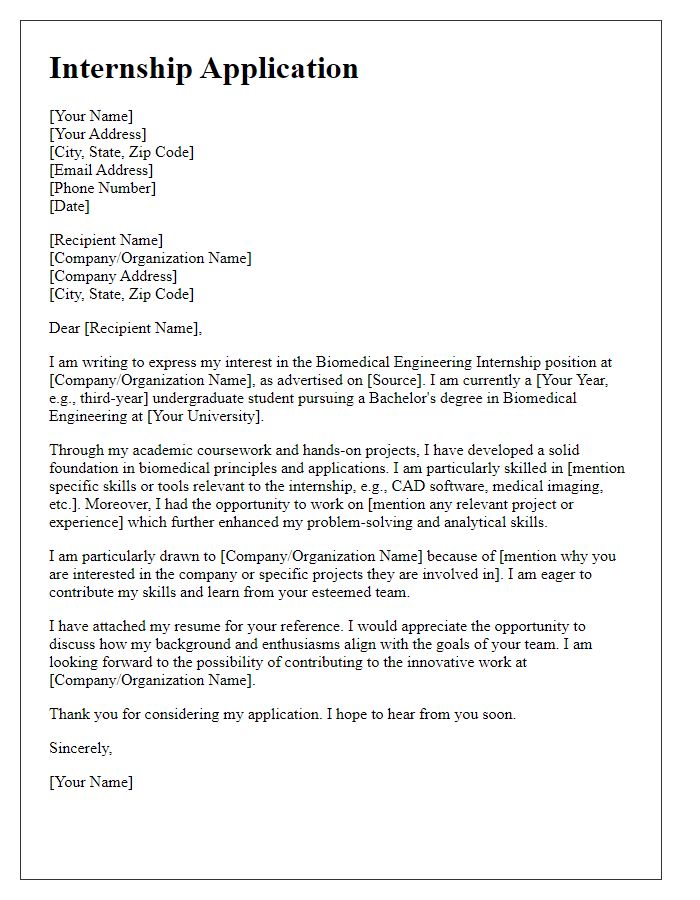
Letter template of internship application for biomedical engineering graduates
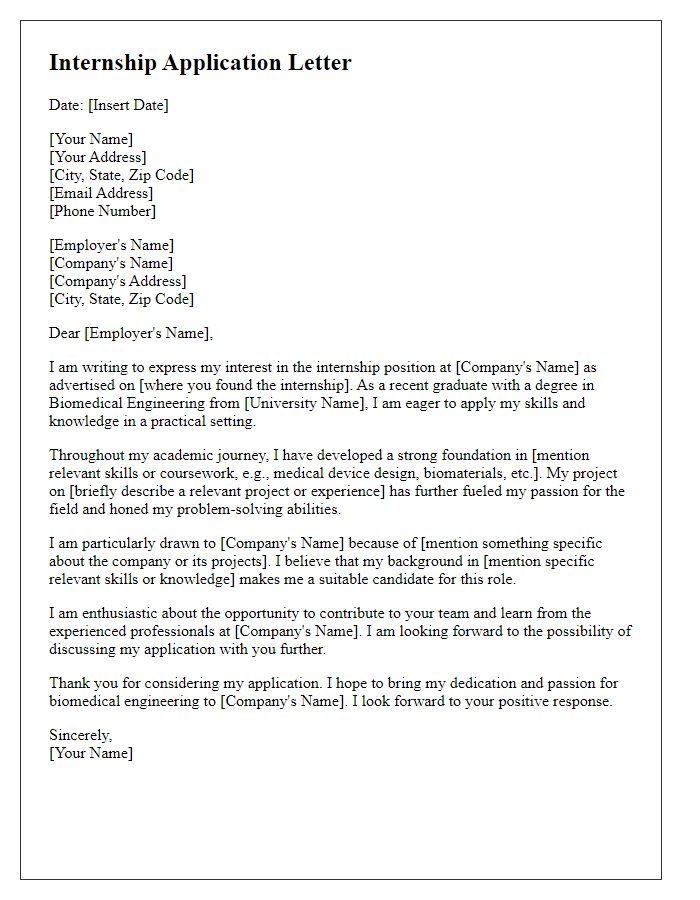
Letter template of volunteer internship application in biomedical engineering
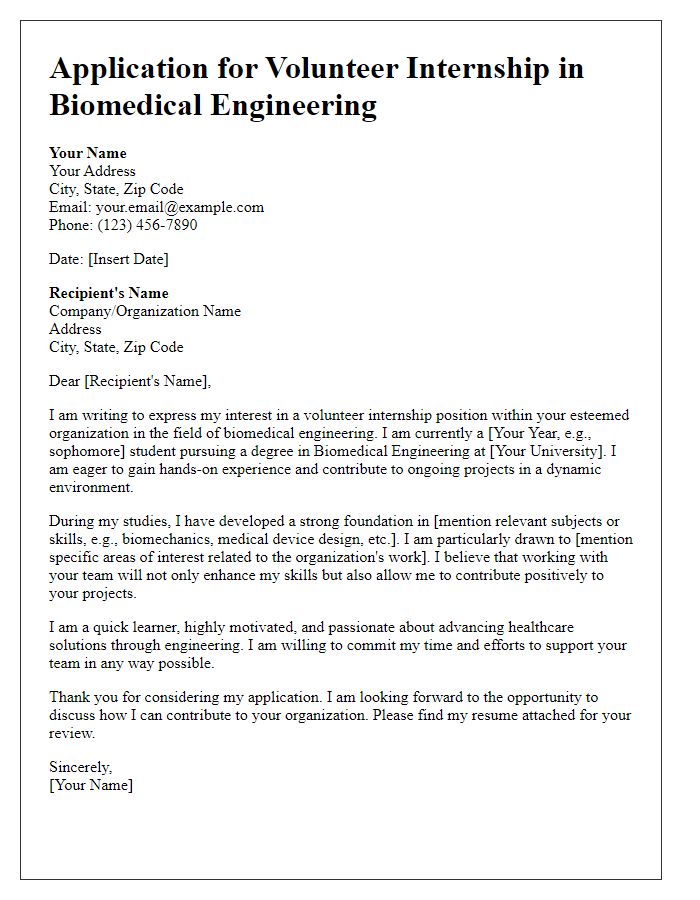
Letter template of remote internship application for biomedical engineering
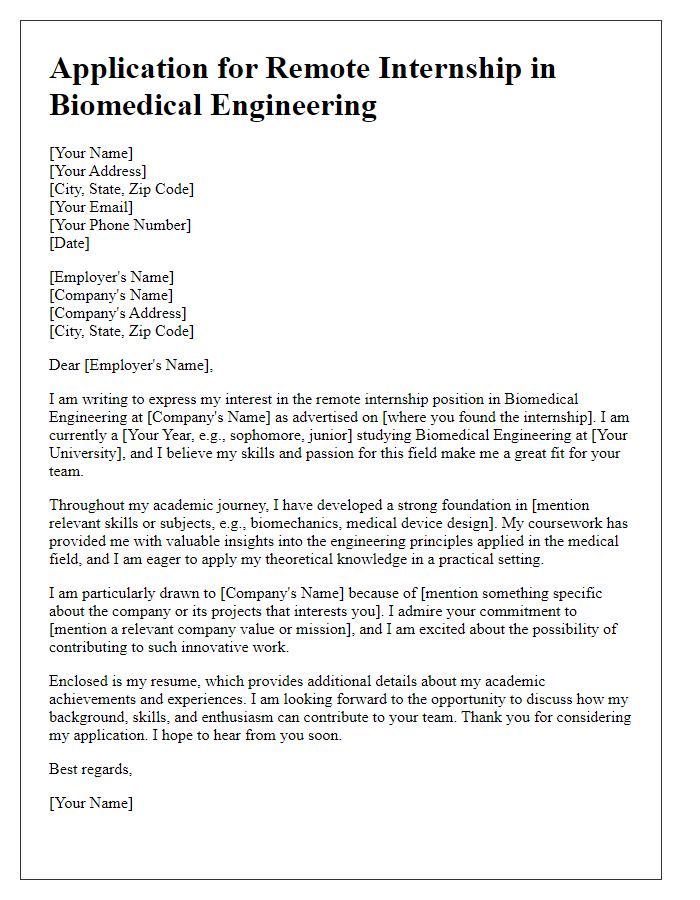
Letter template of co-op internship application in biomedical engineering
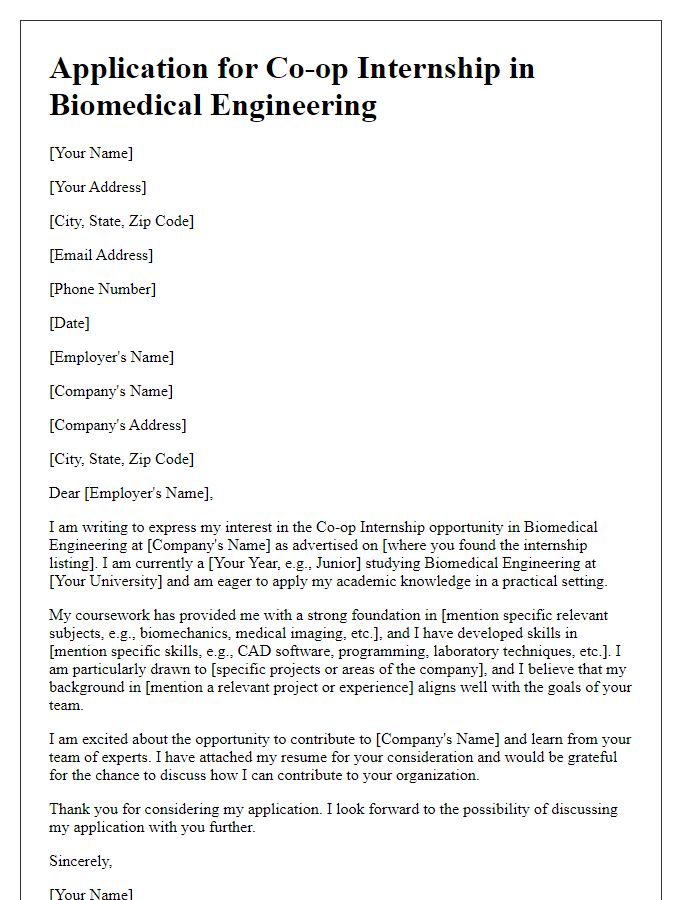
Letter template of international internship application for biomedical engineering
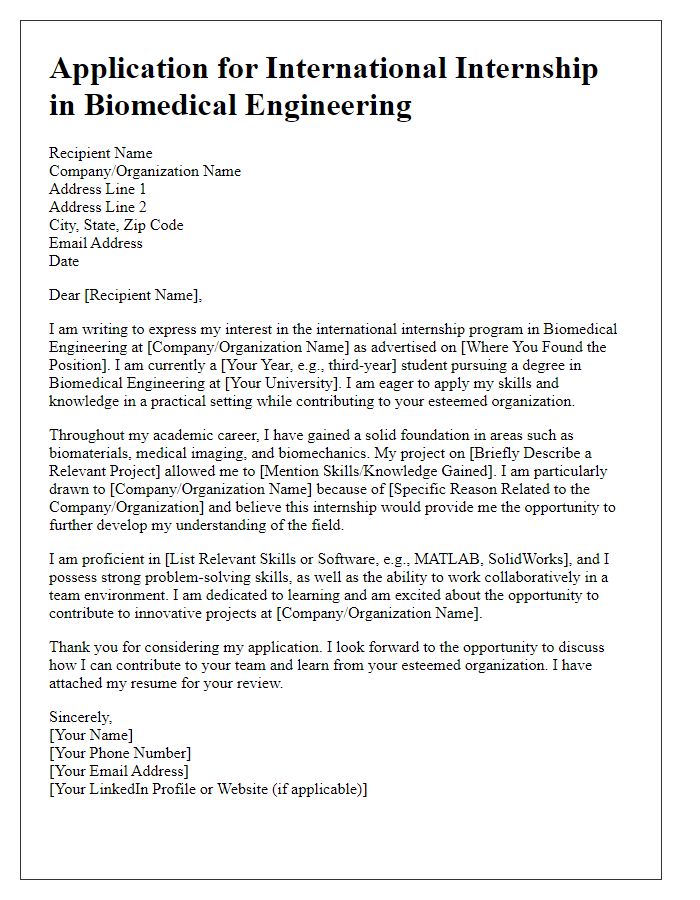

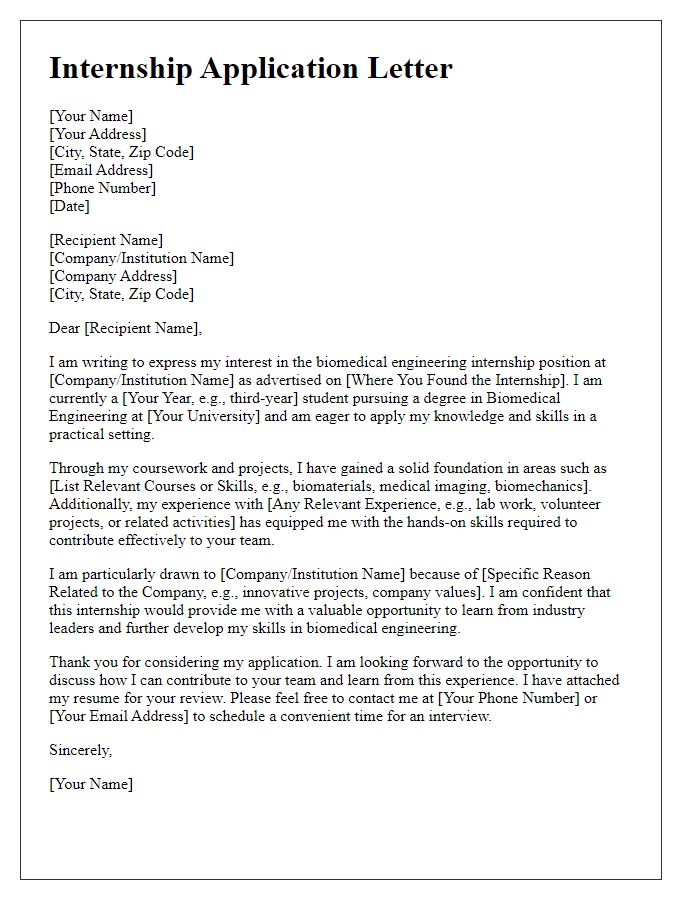


Comments